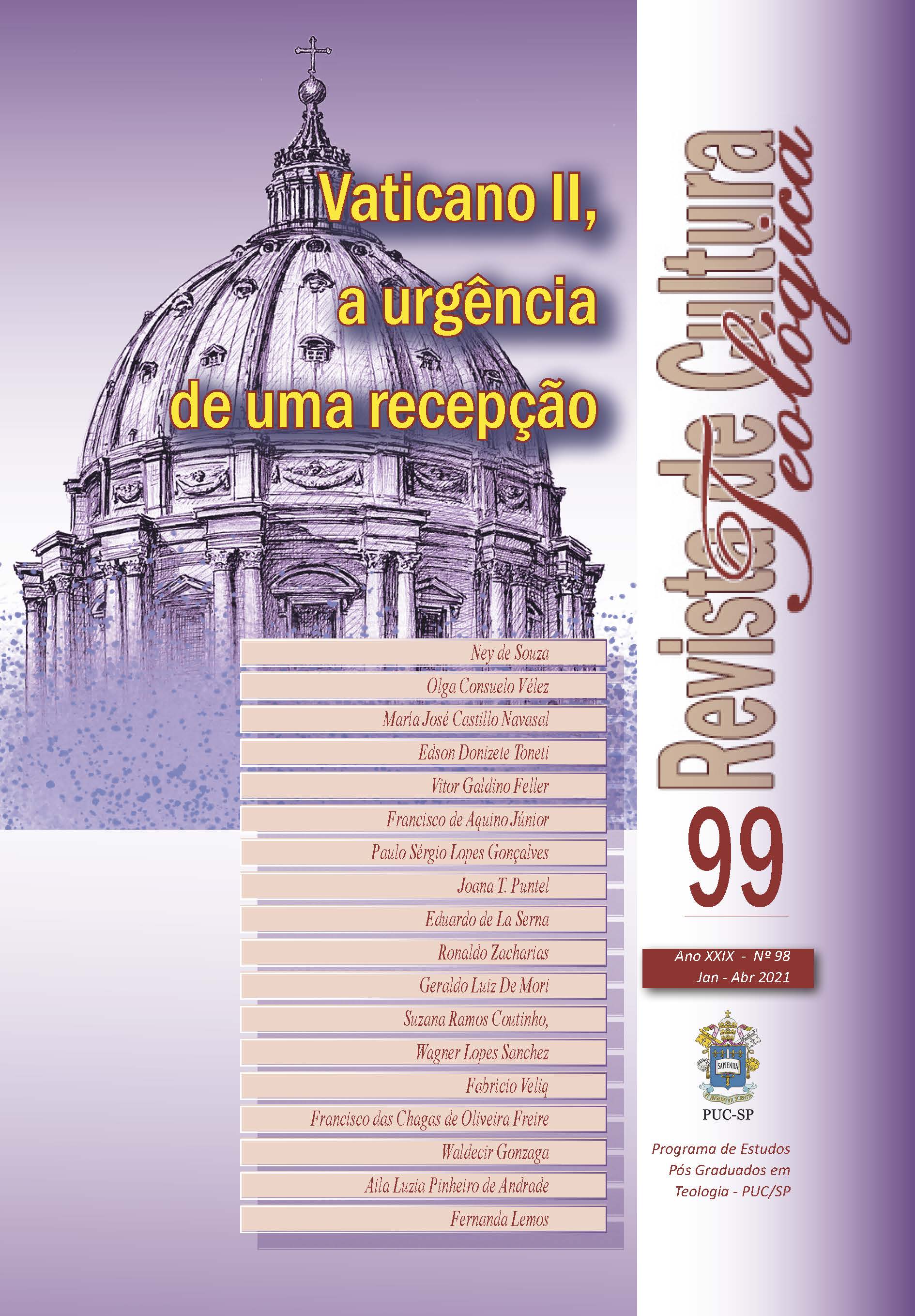A teologia crítica de Kant: da fé racional à fé reflexionante
DOI :
https://doi.org/10.23925/rct.i99.53427Mots-clés :
Teologia, Moral, Fé racional, Fé reflexionante, PensamentoRésumé
O rigor com que Kant nega a possibilidade de demonstração teórica da existência de Deus, aliada a uma hermenêutica que focaliza o sistema kantiano a partir da teoria do conhecimento, induziu numerosos intérpretes a considerar a expressão “teologia kantiana” como um oximoro. Intérpretes prestigiados o veem como agnóstico ou, na melhor das hipóteses, deísta. Em todo caso, Kant não admitiria um fundamento racional para a religião e a teologia. O presente artigo tem a intenção de examinar os princípios e condições de legitimidade que viabilizam a teologia kantiana. A teologia encontra fundamento numa necessidade subjetiva da razão. Trata-se de uma necessidade moral de representação teleológica, sem a qual a vontade não pode ser determinada. Embora esteja fundamentada na moral, a teologia se constitui em uma disciplina autônoma. A fé está enraizada na racionalidade e não pode ser ignorada sem que a razão entre em contradição consigo mesma. A fé racional pura deve ser a bússola e o parâmetro seguro para a fé reflexionante, ou seja, para o pensamento sobre o incomensurável e obscuro espaço do suprassensível. Kant legitima o pensamento – por oposição a conhecimento – como alargamento do puro conceito do entendimento.
Références
ALLISON, Henry E. Kant’s Transcendental Idealism. Yale University Press, London, 2004, p. 16-19.
HENRICH, D. The moral image of the world. In: ______. Aesthtic judgment and the moral image of the world. Standford: Standford University Press, 1992. pp. 3-28.
KANT, Immanuel. Kants Gesammelte Schriften. Herausgegeben von der Deutschen Akademie der Wissenschaften, 29v. Berlin: Walter de Gruyter, 1902.
KANT, Immanuel. Crítica da Razão Prática. Tradução, introdução e notas de Valério Rohden. Edição bilíngue. São Paulo: Martins Fontes, 2003.
KANT, Immanuel. Crítica da Razão Pura. Tradução de Manuela Pinto dos Santos e Alexandre Fradique Morujão. Lisboa: Fundação Calouste Gulbenkian, 2001.
KANT, Immanuel. Crítica da Faculdade do Juízo. Tradução de Valério Rohden e António Marques. Rio de Janeiro: Gen e Forense Universitária, 2012.
KANT, Immanuel. Lectures on Metaphysics. Translated and edited by Karl Ameriks and Steve Naragon. Cambridge: Cambridge University Press, 1997.
KANT, Immanuel. Lectures on Religion. In: Religion and Rational Theology. Translated and edited by Allen Wood and George di Giovanni. New York: Cambridge University Press, 1996, pp. 335-452.
KANT, Immanuel. Que significa orientar-se no pensamento? Tradução de Artur Morão. Covilhã: LusoSofia: Press, 2008.
KANT, Immanuel. A Religião nos limites da simples razão. Tradução de Artur Morão. Edições 70, Lisboa, 2008.
KANT, Immanuel. Sobre o fracasso de toda tentativa filosófica na teodiceia. Tradução e notas de Joel Thiago Klein. In: Studia Kantiana. 19 (dez. 2015): pp. 153-176.
PALMQUIST, Stephen. Kant’s Critical Religion. Aldershot, UK: Ashgate Publishing, 2000.
PRAUSS, Gerold. Kant und das Problem der Dinge an sich. Bonn: Bouvier Verlag, 1989.
WOOD, Allen. Kant´s Deism. In: ROSSI, Philip. Kant’s Philosophy of Religion reconsidered. Bloomington: Indiana University Press, 1991, pp. 1-21.
Téléchargements
Publié-e
Comment citer
Numéro
Rubrique
Licence
© Revista de Cultura Teológica 2021

Cette œuvre est sous licence Creative Commons Attribution - Pas d'Utilisation Commerciale - Pas de Modification 4.0 International.
Os autores concedem à revista todos os direitos autorais referentes aos trabalhos publicados. Os conceitos emitidos em artigos assinados são de absoluta e exclusiva responsabilidade de seus autores.

